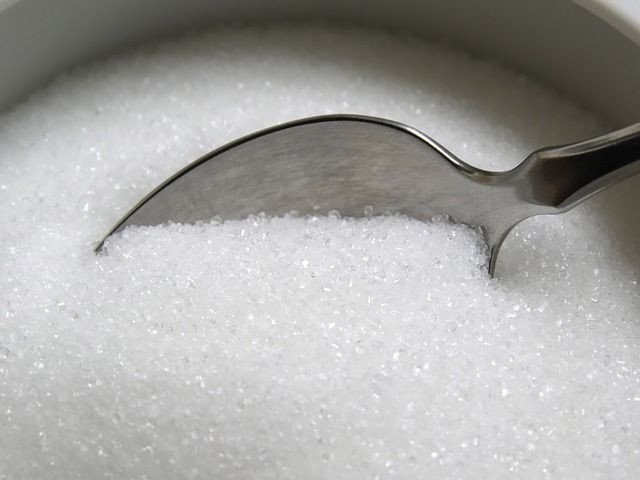Artificial Sweeteners And Weight Loss: Industry-Funded Studies May Overstate Health Benefits

The sugary taste of artificial sweeteners may not be the only thing that’s manufactured, suggests a scathing new study published earlier this month in PLOS-One.
A trio of researchers from John Hopkins University in Maryland, the University of California San Francisco, and Australia's University of Sydney took an extensive look at 31 past reviews on the potential weight loss effects of artificial sweeteners. They found that studies directly funded by sweetener companies or published in industry-funded journals were more likely to find positive health benefits compared to reviews funded independently or by the competing sugar industry. Similarly, reviews authored by scientists who had a relevant financial conflict of interest were also less likely to shine a harsh light on sweeteners, either directly via positive results or by putting a positive spin on negative results when discussing their conclusions.
"It's alarming to see how much power the artificial sweetener industry has over the results of its funded research, with not only the data but also the conclusions of these studies emphasising artificial sweeteners' positive effects while neglecting mention of any drawbacks," said co-author Professor Lisa Bero, head of the Charles Perkins Center's bias node at the University of Sydney, in a statement.
The authors, led by Dr. Daniele Mandrioli, associate director of the Ramazzini Institute's Cesare Maltoni Cancer Research Center in Italy, were inspired to examine the literature behind artifical sweeteners following research showing a similar skewing effect from studies funded by the food and beverage industry. Most recently, an analysis released earlier this September found that a sugar trade group paid the equivalent of nearly $50,000 in today’s dollars to fund a 1967 review by Harvard researchers that concluded sugar had little to nothing to do with heart disease risk. Elsewhere, funding efforts have been utilized by the oil and tobacco industries to either delay or deny the scientific consensus behind their product’s now-acknowledged health and environmental impacts.
Independent research has largely cleared artificial sweeteners of the most damaging charges made against them — that they can cause cancer, for instance. But the debate over whether they actually help people lose weight has been much more contentious. Scientific reviews have been long considered the gold standard by which to make a definitive verdict on a new drug treatment or health issue, but many critics have grown less confident in them in recent years.
That’s not only because private companies are funding seemingly independent research, but because many studies go unpublished, particularly if they don’t present new and flashy results. Without accounting for these missing or biased studies, reviews can end up distorting the science rather than making things clearer. This dysfunction goes both ways, with the current authors finding that studies funded by the sugar industry were more likely to bash artificial sweeteners.
“These findings suggest that fair evaluations of safety and effectiveness of products might be potentially undermined by reviews on a product performed by competitors.” they wrote in the study.
While there’s nothing inherently wrong with industry-funded science, the researchers and some critics believe both scientists and academic journals need to be much clearer and more accountable in terms of who is paying for the research. Nearly half of the reviews authored by scientists with conflicts of interest (13 out of 31) didn’t disclose their conflicts within the review itself, and 19 didn’t even include any disclosure statements whatsoever. The authors added there’s been little research done on if and how studies published in industry-funded journals can sway the science behind a issue. And despite the long-standing tradition of peer review, many leading journals appear ill-equipped to handle the cherry-picking of data prevalent in industry-funded studies.
It isn’t all good on the independent side either: The authors found that virtually every review had a high risk of bias somewhere along the process. While that means that the positive results seen in industry-funded reviews (3 out of 4) likely weren’t influenced by something else, it also means that the other reviews didn’t do a great job in picking out the studies they chose to examine.
“To reduce bias, reviews of the effects of artificial sweeteners on weight need improvement in their search strategies, data collection and assessment of included studies,” concluded the authors.
Source: Mandrioli D, Kearns C, Bero L. Relationship between Research Outcomes and Risk of Bias, Study Sponsorship, and Author Financial Conflicts of Interest in Reviews of the Effects of Artificially Sweetened Beverages on Weight Outcomes: A Systematic Review of Reviews. PLOS-One. 2016.
Update: This piece was updated to note the lead author's primary research afflilation.
Published by Medicaldaily.com



























